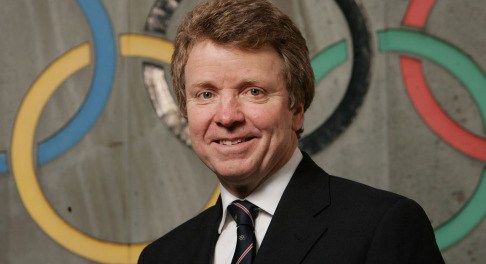Olympic host: London 2012 will change the role between sport and governments

15.05.2009
By Steve MenaryLord Moynihan, a former Conservative Party minister, has warned that governing bodies must be alert to the increasing role of the state in sport and retain their autonomy.
Lord Moynihan said: “The role of the state now is a concern to sport worldwide. Governments have become involved in all aspects of sport. Hardly a government department is left untouched and sport is subject to massive regulation in areas such as health and safety.”
Speaking at King’s College London May 13, Lord Moynihan warned of the loose definitions in the European Union’s recent Lisbon Treaty, which allows for sport to be exempt from other industries but can come into conflict with other EU directives.
He cited EU directives on clean bathing water and temporary working at height. If both had been strictly applied, competitive rowing in the River Thames – home to the annual Boat Race between Oxford and Cambridge Universities – and rock climbing could have been at risk.
Lord Moynihan added: “The Lisbon Treaty is open to interpretation and we need to examine the political affects and how future regulation affects the autonomy of sport.
“The strength of the political role is evident at European level. Sport is the biggest social movement in Europe and is a policy area that had been developing at EU level for several years.
“There is a growing recognition of the power of sport and governments recognize the feelgood factor. The Olympics are regarded as the golden goose because they lay the glittering egg. Winning the right to host 2012 placed sport higher up the [political] agenda than ever before in the UK.
“There is a danger that political intervention will affect the autonomy of sport. The BOA recognizes this and that sport does not exist in a vacuum. The true legacy of 2012 [will be] how sport responds to the greater politicization of sport at a national level and in the run-up I have been working to ensure that.”
Lord Moynihan was giving the inaugural Edward Grayson Memorial Lecture in memory of the former president of the British Association for Sport & Law (BASL).
In his speech, entitled ‘Fair Play - Is there still room for the Corinthian Spirit in sport?’, he questioned whether there was a role for the ideals of the Victorian Corinthians, who put participation above all else in sport and went on to found many sports, such as football, rugby union and cricket.
Lord Moynihan proposed a new Corinthian spirit for the twenty-first century, where the word ‘elite’ would be taken out of sport to provide a greater link between top level sport and the grass roots, and government intervention was resisted.
“Today’s stars come from the grass roots, that’s where sport’s benefits are most profound,” concluded Lord Moynihan, who expressed concern that government funding for sport was creating problems.
He added: “The idea that governments had a role to fund sport was unthinkable [when Britain first hosted the Olympics in 1908].
“We are [now] at a crossroads and one sign post points to an increasing commercialisation, we move up to another crossroads and the sign points to increasing government funding but subject to the whims of changing parties, then we move on to another sign that points to increasing participation.”
“For the modern-day Corinthian, the debate is not about amateurism and professionalism, but about the role of the state and preservation of the autonomy of sport. Solutions for sport must be decided by sport and we must resist the growing attempt to politicise sport at all levels.”
http://www.britishsportslaw.org






The side effect of the so called autonomy of "elite" sport is seen in underdeveloped and underestimated values of PE and sport for all with folk games as well. The most precious value of sport is in social and health benefits of regular physical activity and playful leisure time, and not in international competition.
And finally, the values of olympism speaks nothing about olympic games. So who is politicizing sport?